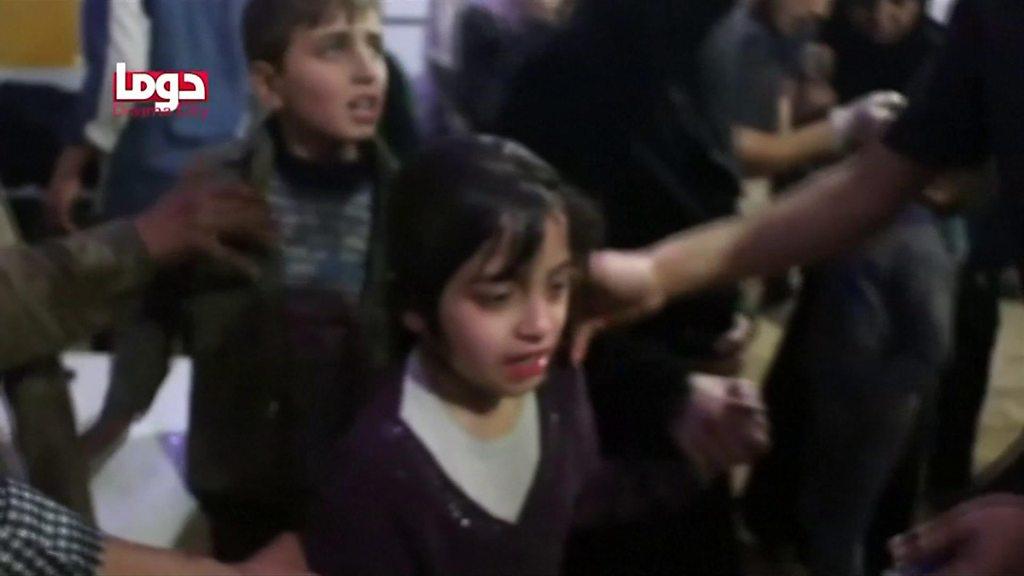Syria war: Missile strikes on military sites 'kill pro-Assad fighters'
- Published
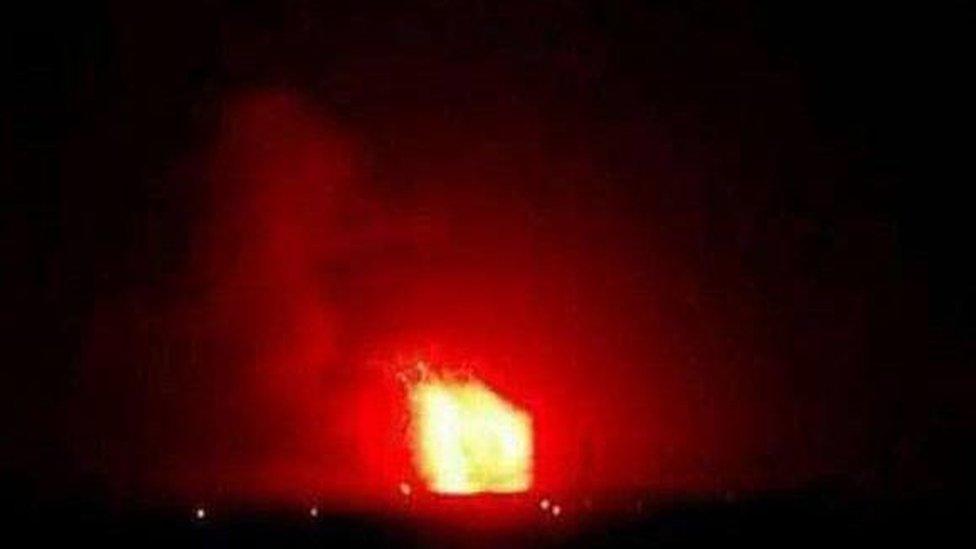
Large explosions were reportedly seen coming from a military facility south of Hama
Missile strikes on military sites in northern Syria overnight reportedly killed a number of pro-government fighters, including Iranians.
The Syrian military said facilities in Hama and Aleppo provinces were struck.
It did not say if there were any casualties. But a UK-based monitoring group said four Syrians and 22 foreigners, mostly Iranians, died.
It is not known who was behind the attacks. But Western nations and Israel have previously hit sites in Syria.
Earlier this month, the US, UK and France bombed three facilities they said were associated with the Syrian government's alleged chemical weapons programme.
Israel is meanwhile alleged to have hit an airbase reportedly serving as an Iranian drone command centre and containing an advanced Iranian air defence system.
The office of the Israeli Prime Minister Benjamin Netanyahu says he will issue a statement on Monday evening on a "significant development" regarding the nuclear deal between Western powers and Iran.
Mr Netanyahu has been a staunch opponent of the deal, arguing that it should be "fixed" or scrapped. US President Donald Trump is due to decide on 12 May whether or not to reimpose nuclear-related sanctions on Iran, a move which would put the agreement in jeopardy.
What was hit on Sunday?
A Syrian military source cited by the official Sana news agency did not identify any specific locations, saying only that the military sites were "exposed... to a new aggression", external at 22:30 (19:30 GMT).
The source added that the strikes came after "terrorist organisations" had suffered defeats in the countryside around the capital, Damascus, an apparent reference to the recent recapture of the Eastern Ghouta region from rebel groups.
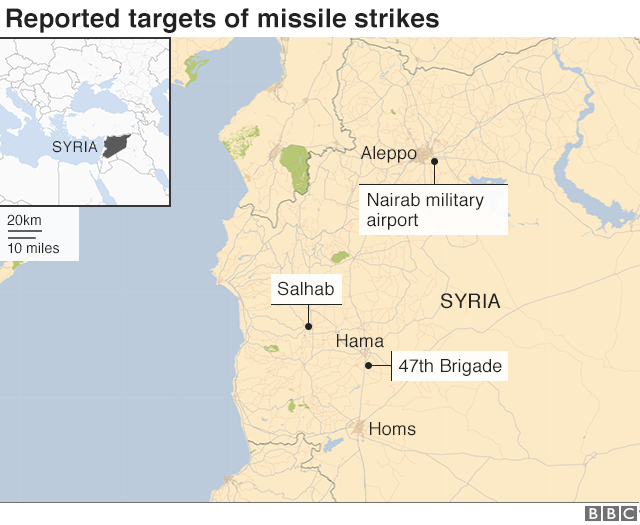
The Syrian Observatory for Human Rights (SOHR), a UK-based monitoring group, said one strike appeared to have targeted a depot for surface-to-surface missiles at the 47th Brigade military base, south of the city of Hama.
The pro-opposition Orient News website also reported that large explosions were seen coming from what were believed to be ammunition caches at the base, external.
Allow Facebook content?
This article contains content provided by Facebook. We ask for your permission before anything is loaded, as they may be using cookies and other technologies. You may want to read Meta’s Facebook cookie policy, external and privacy policy, external before accepting. To view this content choose ‘accept and continue’.

Opposition media activist Mohammed Rasheed told the Associated Press that debris from the explosion at the depot struck parts of Hama, external and that residents of areas near the base fled their homes.
Missiles are also reported to have hit locations in the Salhab area, west of Hama city, and the area surrounding Nairab military airport, which is close to the city of Aleppo and its international airport.
Who was reportedly killed?
The SOHR cited its sources as saying 26 pro-government fighters were killed in the missile strikes, most of them Iranians. It added that the death toll might rise as 60 fighters were wounded, some of them seriously, and that others were missing.
An official from a pro-Assad military alliance that includes Iran and Lebanon's Hezbollah movement told the New York Times that the strike on the 47th Brigade base destroyed 200 missiles and killed 16 people, including 11 Iranians, external.
Iran's semi-official Fars news agency cited its sources as saying that the missiles struck weapons depots in southern Hama and an area north of Aleppo's airport, external, but they denied that Iranian military advisers were killed.
Iran's Tasnim news agency also said an "informed" source had dismissed as "baseless" the reports that Iranian facilities were hit and Iranians killed, external.
Who was behind the strikes?
A Syrian state-owned newspaper quoted sources as saying the missiles were fired from US-British bases in northern Jordan.
But the SOHR said that given the nature of the reported targets, the missiles were probably fired by Israel.
Israeli Intelligence Minister Yisrael Katz said on Monday morning that he was "not aware" of any strikes.
"All the violence and instability in Syria is the result of Iran's attempts to establish a military presence there. Israel will not allow the opening of a northern front in Syria," he told Israel's Army Radio.
The Israeli government has repeatedly vowed to stop Iran from strengthening its military presence in Syria, where it has deployed hundreds of troops to help keep President Bashar al-Assad in power since the country's civil war began in 2011.
Thousands of Shia Muslim militiamen armed, trained and financed by Iran - mostly from Hezbollah, but also Iraq, Afghanistan and Yemen - are also fighting alongside the Syrian army.

Iran vows to 'hit back'
By Ali Hashem, Iranian affairs correspondent, BBC Arabic, Beirut
Up to now it is not clear who carried out the strikes, nor who exactly was killed. While a UK-based monitoring group said the casualties were mostly Iranian, sources in Iran denied that any of its bases were hit or any of its "military advisers" died.
Analysts have speculated about Israeli or US involvement. Syrian media quoted a senior military source as saying that nine missiles were fired from a US-British base in Jordan.
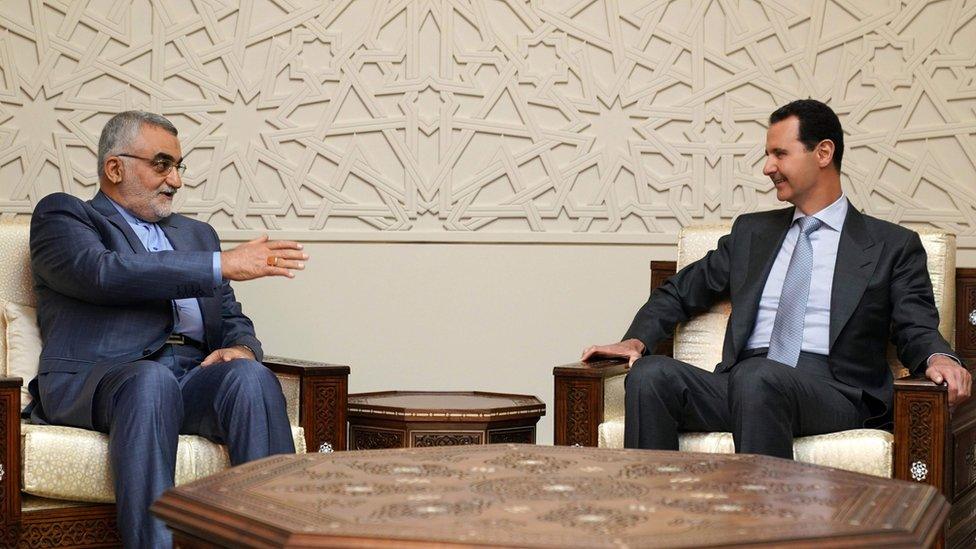
Iranian MP Alaeddin Boroujerdi met Syrian President Bashar al-Assad hours after the strikes
It is very unlikely that a US-led attack would be carried out without Washington admitting to it.
On 8 April, an air strike - believed to be Israeli (though not officially acknowledged) - targeted an Iranian facility at the T4 airbase in Homs province, killing seven Iranian personnel.
Iranian officials vowed to respond to that attack, and on Monday Iran's Supreme Leader Ayatollah Ali Khamenei warned the US that the "the time of hitting and running is gone", external. "Now, if you hit, you will be hit back," he said.
- Published8 April 2018
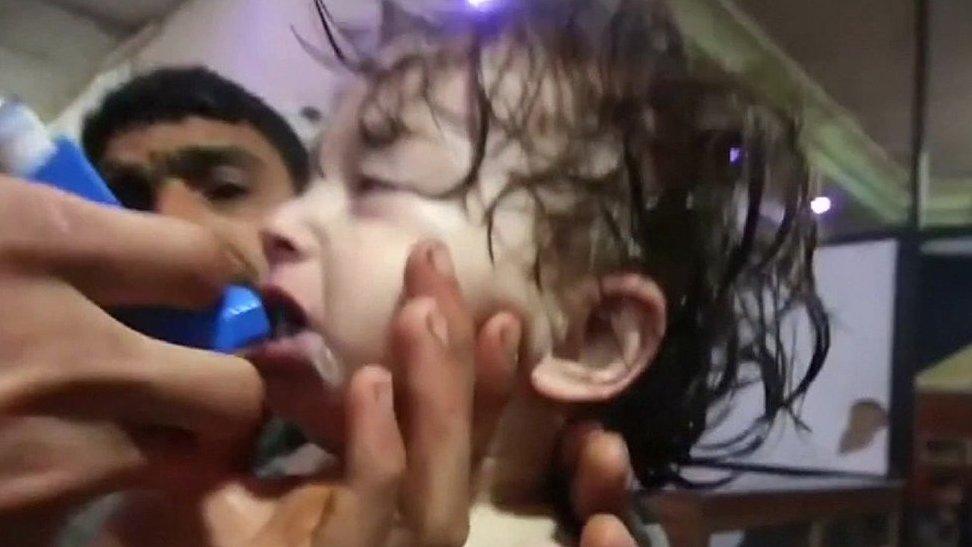
- Published8 April 2018
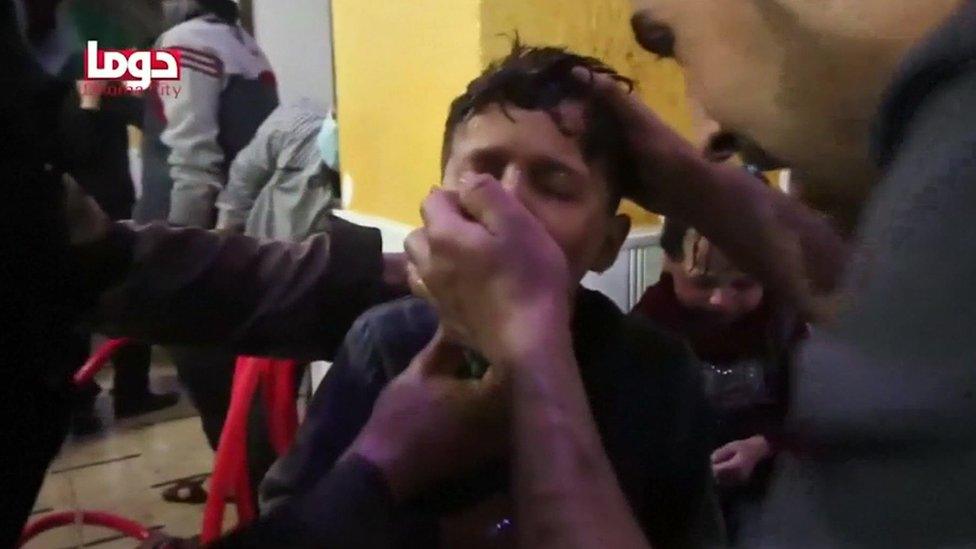
- Published2 May 2023

- Published10 November 2017
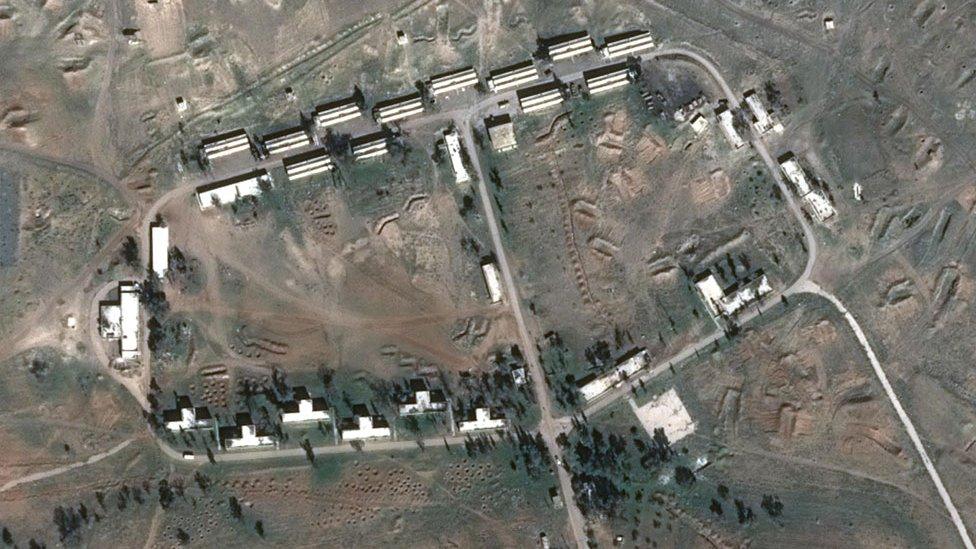
- Published8 April 2018
